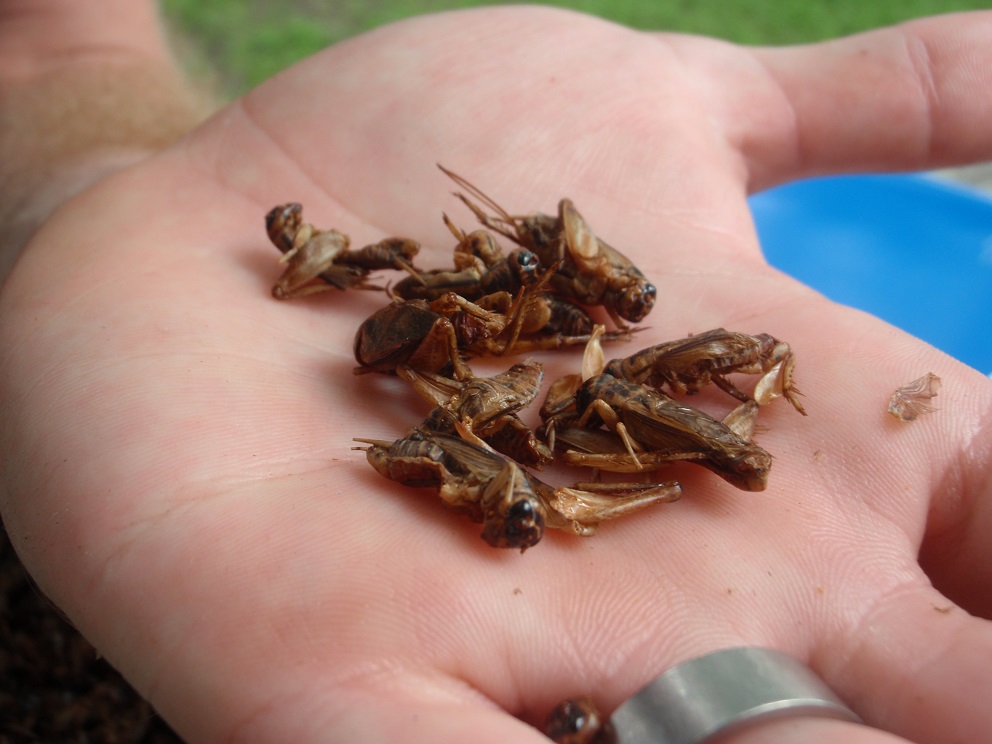Conservation/Food: Eating Bugs to Save the World
This is Passport to Texas
Experts predict the world’s population will increase to nine billion people by 2050. That’s two billion more mouths to feed. And Robert Nathan Allen says an eco-friendly protein to help nourish the masses is insects.
07— Compared to say a cow, where we can only really eat about forty percent of the cow, with insects; we can eat most if not all of them.
Allen founded the nonprofit Little Herds to educate the public about insects as a nutritious alternative food source. Insects are high in protein and rich in fiber and micronutrients. Currently 70% of agricultural land supports meat production, which limits the industry’s future growth.
15—So, with insects, we can raise them in a modular fashion vertically on a fraction of the land as traditional livestock, with a fraction of the water, with a fraction of the feed, and end up with more nutritional valuable protein.
It’s a huge leap from eating burgers to bugs. For the brave ones, Allen recommends obtaining edible insects from farms that raise them for human consumption.
11—That way we can assure that they’re raised in a hygienic, safe, clean environment. We can make sure that there’s no risk of diseases and parasites, and we can make sure tht they’re eating a clean, wholesome diet.
According to a UN report, over 2 billion people worldwide already supplement their diet with insects. Intrigued? Learn more about edible insects at littleherds.org.
For Texas Parks and Wildlife, I’m Cecilia Nasti.



 Passport to Texas is a
Passport to Texas is a  Passport to Texas is made available by:
Passport to Texas is made available by: